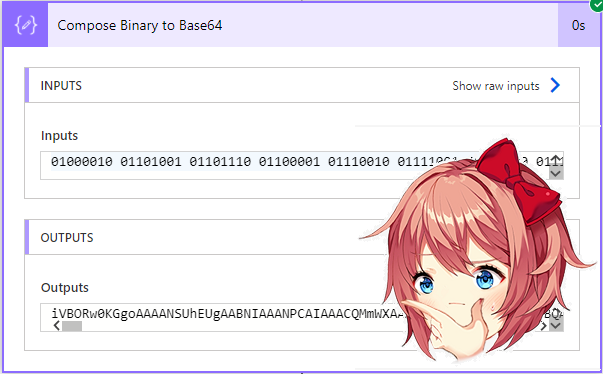
Content automation is a process that uses software to automatically create content, edit it, publish it, and distribute it. This can help businesses save time on everyday tasks and improve efficiency across the entire content marketing cycle.
Automated Content Creation
The best content automation tools can simulate a human writer to generate unique copy that's optimized for search engines and speaks to your audience. Also, they can use existing content to fill gaps and ensure you are delivering engaging, relevant, and shareable material.
Modern businesses must create content tailored to their audience. McKinsey states that 76% consumers get frustrated when brands do not provide personalized experiences. This is why many content automation platforms go the extra mile to deliver content that's tailored to a specific audience or customer segment.
Using AI tools, automation of content can create highly personalized and engaging content for each user. This helps drive better engagement, higher conversions, and a greater return on investment.

Content automation tools that are fully-AI use algorithmic learning in order to identify topics and phrases across multiple sources. They can achieve a high-quality product without having to hire full-time writers.
Some of these automated tools can even create long-form content. The tools should only be used in conjunction with a human writer and not as a replacement.
Grammarly uses artificial intelligent to find grammatical errors in your writing, correct them, and provide readability tips. It is especially useful for ensuring that content is plagiarism-free and search engine friendly.
Articoolo also allows you to create unique, SEO compatible content. Its AI-powered writing assistant can decipher a topic, extract keywords for SEO based on common search terms, and generate fresh, original content that's both readable and relatable.
The creation and editing of content is essential for any marketing campaign. Whether you're writing blog posts, website content, or social media posts, you need to make sure that it reads well, is grammatically correct, and speaks to your target audience.

Many tools can help you with your editing, from grammar-checkers to writing assistants who can provide suggestions and explain mistakes in written material. The best tools can offer a variety of features, so it's important to evaluate your team's needs before selecting a tool.
Selligent Marketing Automation
You must ensure that all members of your team are working together in harmony, whether they're managing social media, creating advertising campaigns or marketing content. This can be hard to accomplish without a marketing automation tool that allows you to easily define workflows, schedule content for specific times and places, and track results to analyze performance.
Choose a system that can integrate with those that your team is already using. That way, you don't have to develop new systems. It can free your team from the maintenance of these separate tools, allowing them to concentrate on activities that have a greater impact on your bottom-line.
FAQ
Marketing automation is the future
Marketing automation involves the use software and technology to automate, automate, or measure marketing tasks. It frees up resources for more difficult tasks, such as customer behavior analysis or personal engagement. It helps marketers save time and energy by automating repetitive tasks such as segmentation and testing campaigns, personalizing them, tracking customer visits and behavior, and managing customer engagements across all channels.
The future of marketing automation lies with its ability make customer journeys easier and more easily understood. Marketers will be able track customers' journeys across channels by tapping into richer data sources like social media platforms and connected devices to create personalized experiences that engage with customers at every touchpoint. This will allow them to create highly targeted strategies that are both agile and highly targeted.
Artificial intelligence (AI), which is used to automate marketing decisions, will also help make campaigns more efficient. AI-powered bots automate repetitive tasks like scheduling emails and answering simple FAQs from customers. This allows marketers the freedom to concentrate on important tasks that require human insight, such as refining a content strategy or understanding customer sentiments about specific products.
Finally, with an increased acceptance of marketing automation tools among smaller businesses along with advancements being made in predictive analytics technologies which help generate insights from data collected via marketing automation; it's safe to say that automated marketing will continue to rise in popularity as we approach 2021.
Marketing automation is a valuable tool that can help businesses thrive in today's competitive marketplace. Businesses can save time, money, and create personalized customer experiences by using the right strategies and tools. Businesses can improve response rates and customer satisfaction by leveraging customer segmentation. As technology advances, marketing automation will become more crucial in helping businesses to remain competitive and thrive in the future.
What is SEO Automation?
Automation in SEO is the use of technology to automate marketing-related tasks and processes. Automation in SEO helps to save time, cut costs, and makes campaigns more efficient. Automating SEO activities can streamline content creation, keyword research and link building. Automated SEO tools provide data-driven analysis which identifies high-value potential opportunities that might otherwise be difficult to spot using traditional search engine optimizing methods.
There is almost no SEO task that can't be done automatically these days. This includes everything, from monitoring websites' performance and competitor insights to optimising your content for higher search engine rankings.
Automation works in the background so teams can focus on strategic initiatives and not get bogged down in manual tasks. Automation helps to deliver rapid improvements across many metrics in order to maximize ROI and save valuable resource.
It also allows you to keep up with the changes occurring across search engines. This will ensure that your website remains competitive in a constantly changing digital landscape.
Automation can also help you create and distribute content more efficiently. Automated SEO tools enable you to quickly create keyword-rich content tailored to your audience. Automation can be used to publish content across multiple channels including blogs and social media. This will ensure that your content reaches more people and is visible on search engine results pages.
What is WordPress marketing automation?
WordPress marketing automation allows for the automated, efficient, and effective management all content and communications online related to marketing. This includes websites, email campaigns and social media posts. It can automate tasks that are too difficult or time-consuming to perform manually.
This helps businesses not only save their time but also ensures consistent brand promotion every time they use multiple channels. Automation simplifies complicated tasks such as segmentation and data analysis so that marketers can spend their time creating strategies based in accurate insights and not manually looking through huge volumes of data.
WordPress marketing automation focuses on creating lead nurturing workflows, sending emails based off specific visitor actions, and personalizing customer journeys using personalized messages to exceed customers' expectations. Also included are tracking detailed reports about website activity and ROI performance to measure the effectiveness of campaigns over time.
WordPress marketing automation lets businesses automate repetitive tasks while increasing their marketing performance through better marketing resources. All this while keeping costs low.
Can I automate WordPress?
Automated WordPress automates manual processes involved in maintaining a WordPress website. This automation makes it easy for you to keep your website current, make changes quickly to it, keep it safe from malicious attacks, and track user activity.
Automated WordPress allows you to automatically update your content from the server. It makes site maintenance easier by backing up files and restoring deleted data. Automated WordPress can also provide integrated security solutions, which will identify any potential threats for your website.
Automated WordPress tools allow you to collect data about visitors to your site. This includes information such as browsing habits and demographics. This data can be used to help develop better strategies for marketing efforts or other initiatives.
Automated WordPress is a great way to increase efficiency, reduce workloads, and make it easier to maintain a website. Automated WordPress makes repetitive tasks easier and provides valuable insight into how visitors interact with your site. This can help you make better decisions.
Automated WordPress can be used by businesses to improve their efficiency. Automated marketing tools allow businesses to automate campaigns and track results in real time. With these tools, businesses are able to quickly create campaigns, target certain customer segments, measure the effectiveness of their efforts, and monitor their progress. This helps businesses save time and resources while ensuring that they are reaching the right people with the right message.
Is WordPress capable of marketing automation?
WordPress marketing automation is an automated process which allows marketers to manage and create content for their WordPress website. It can be used by developers, marketers or anyone else who needs to quickly create and execute complex tasks.
It works by setting up triggers, creating workflows, and triggering when someone performs a certain act, such as visiting a webpage or opening an email. This automation system can be used to update pages and send out emails. It can also schedule social media posts.
WordPress marketing automation allows for personalized messages to be sent based on user behaviour and interests. This helps to rationalize marketing efforts across channels.
Similar results can be obtained with detailed analytics reports, which show the source of each lead. This will allow you to concentrate your efforts on the most profitable growth routes.
Marketers can now focus on customer experience and not worry about email management or website updates.
Because of the improved integration between sales and marketing teams working together on similar projects in real time, this allows for greater conversions. Customers don't have long wait times before they get a response.
WordPress marketing automation gives small businesses the ability to identify leads quicker, which greatly reduces acquisition cost. Additionally, it provides valuable insights into campaign impact and performance in real time.
Last but not least: Using this automated platform eliminates human error, profit losses, and profits loss. It operates according to preconfigured guidelines that you've set up in its back-end system settings.
What are the top four features of marketing automation?
Marketing automation software promises to simplify and improve digital marketing processes while providing meaningful insights based on your business goals. The right marketing automation tools will help you make real improvements across all channels and deliver results-driven campaigns. Here are four of the most important features:
-
Automated Campaigns: Make it easier to manage complex campaigns more efficiently by leveraging automated tasks that trigger based on user behavior or other events.
-
Analytics & Information: Benefit from advanced analytics to gain insight on customer behavior and optimize future campaign success.
-
Customer Segmentation. Use customer segmentation in order to ensure that every campaign is tailored and personal for the greatest success.
-
Messaging: Create customized messages for each customer segment and increase response rates.
By leveraging the right marketing automation software, businesses can save time and resources while creating personalized customer experiences. Automated tools enable you to segment customers based on their preferences and behavior, track customer engagement and send personalized messages to each segment. Marketing automation is a powerful tool that can help businesses compete in today's market.
Statistics
- Not only does this weed out guests who might not be 100% committed but it also gives you all the info you might need at a later date." (buzzsprout.com)
- The stats speak for themselves: Marketing automation technology is expected to show a 14% compounded annual growth rate (CAGR) over the next five years. (marketo.com)
- Even if your database is currently filled with quality leads, how effective will your marketing automation be when you've either converted all those leads into customers or when your database begins decaying by ~22.5%/year? (hubspot.com)
- It can help reduce administrative overheads to savings of 3.4% on average, with most companies saving between 1.5% and 5.2% (Lido). (marketo.com)
- While they're doing that, their competition is figuring out how to get more out of the 99.99% of the market that's still out there. (hubspot.com)
External Links
How To
How can I use automation to personalize my content-marketing efforts?
Automated personalization uses data-driven insights to create personalized content that is tailored for specific personas, interests and behaviors. This allows you build personalized marketing experiences based upon how each person interacts. Automation can be used for increasing the relevance of your message using segmentation and targeting strategies.
You can increase the likelihood that your audience will interact with you brand by tailoring your content to meet their preferences and needs. Automating processes also frees up time and other resources so you can focus on bigger-picture tasks like creating high-quality content or strategizing ways to better reach desired audiences.
Segmentation allows personalization to take off. This is done by breaking down your audience into smaller pieces so you can target them more precisely. Automating this process - examining behavior patterns from past campaigns - allows you to quickly create segments based on language, interests, demographics, and even purchase history. You can then craft messages specific to each group. This makes it easier than simply blasting one message across all of the platforms.
Targeting works together with segmentation. Now it's time get the messaging right. By landing relevant offers or ads at the perfect times, you can target your audience. This could involve targeting certain pages or channels in an email or placing banners within micro-targeted locations. Leveraging data intelligence helps to transcend traditional methods of finding leads such as direct mail campaigns or cold calling.
Finally comes optimization - this enables marketers to make minor tweaks during ongoing campaigns in order to produce better results as conditions change over time; further personalizing messages for customers based on their actions. Businesses now have powerful tools to ensure customers receive customized messages. This includes analyzing past campaigns and making real-time adjustments.
To summarize: automated personalization simplifies content marketing efforts by giving brands an automated way to segment audiences quickly and optimize engagement through real-time adjustments powered by data analytics.